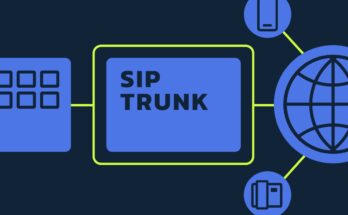The realm of real estate investment is complex, and having the right tools can make all the difference. One such tool is a Customer Relationship Management (CRM) platform specifically designed for real estate investment. These platforms can help investors track and manage their relationships, tasks, properties, and more. However, with numerous options available in the market, choosing the right one can be daunting.
This article will comprehensively review the top CRM platforms used in real estate investment, comparing their features, benefits, and potential drawbacks. Whether you are a seasoned investor or just starting, this guide will help you make an informed decision.
What is a Real Estate Investment CRM?
A CRM or Customer Relationship Management platform is a technology that helps manage all your company’s relationships and interactions with current and potential customers. It helps you improve business relationships, streamline processes, and increase profitability.
In the real estate investment context, a CRM platform is more than just a customer management tool. It’s a comprehensive system designed to manage property portfolios, track deals, automate tasks, and foster investor relationships. A good real estate investment CRM not only maintains contact information but also manages investor interactions, records deal information, and generates reports.
Key Features to Look For in a Real Estate Investment CRM
When choosing a CRM for real estate investment, some features are crucial to look for.
1. Contact Management: The core of any CRM, this feature allows you to store and manage contact details of all your investors and leads.
2. Deal Tracking: A good CRM should help you keep track of your deals. It should record details like property information, investment amounts, stages of the deal, and more.
3. Task Automation: The CRM should automate routine tasks, like sending emails, setting reminders, generating reports, etc.
4. Mobile Access: With the rise of remote work, a CRM providing mobile access is critical. It allows you to manage your tasks and contacts from anywhere, anytime.
5. Integration: Your CRM should be able to integrate with other tools you use, such as email services, social media platforms, or accounting software.
6. Security: Given that you’ll be storing sensitive information, the best CRM for real estate investors should have strong security measures in place.
Top Real Estate Investment CRMs
Let’s now take a look at some of the top CRMs for real estate investment.
1. Zoho CRM: Known for its robust features, Zoho CRM offers contact management, deal tracking, task automation, and more. It can integrate with numerous other Zoho products and is available on mobile devices. However, some users find its interface less user-friendly compared to others.
2. Pipedrive: Pipedrive shines in its simplicity and user-friendly interface. It’s great for deal tracking and offers task automation and mobile access. However, it’s not as feature-rich as some other CRMs.
3. Salesforce: As one of the leading CRM providers, Salesforce offers a wide array of features, including contact management, deal tracking, task automation, and advanced analytics. But it’s more complex and can be overwhelming for new users.
4. HubSpot CRM: HubSpot CRM is praised for its user-friendly interface and robust features. It offers excellent integration with other HubSpot products but might lack advanced features for seasoned investors.
Pros and Cons of Using a CRM
Pros:
- Streamlined Operations: A CRM can help streamline your operations, saving you time and making you more efficient.
- Improved Communication: With all your contact details and conversation history in one place, a CRM can significantly improve your communication with investors.
- Better Decision Making: With comprehensive data at your fingertips, you can make more informed investment decisions.
Cons:
- Complexity: Some CRM platforms can be complex and require training to use effectively.
- Cost: While many CRM platforms offer basic plans for free, you’ll likely need to pay for more advanced features.
- Security Concerns: As with any digital platform, there are always security concerns when dealing with sensitive information.
Making the Right Choice
Choosing the right CRM for your real estate investment business depends on your specific needs. Factors to consider include the size of your portfolio, the complexity of your operations, your budget, and your tech-savviness.
Identifying your needs and goals is the first step. Are you looking for better contact management, more efficient deal tracking, improved task automation, or all of the above?
Next, consider the ease of use. A user-friendly interface can make your daily operations much smoother.
Also, consider the cost. While some CRM platforms may offer more features, they may also come at a higher cost. Choose a platform that offers the best value for money based on your needs.
Finally, don’t forget to consider security. Ensure that the platform you choose has robust security measures in place to protect your valuable data.
Conclusion
In today’s digital age, having the right CRM platform is vital for any real estate investor. These platforms can significantly enhance your operations, helping you manage your contacts, track your deals, automate tasks, and make better decisions.
While choosing the right CRM can be a complex task, making an informed decision based on your specific needs and goals is essential. Remember, the best CRM platform is the one that fits your needs, is easy to use, fits within your budget, and offers robust security. So, whether it’s Zoho, Pipedrive, Salesforce, or HubSpot, each platform has its strengths. The key is to identify which one aligns best with your business objectives and operational requirements.



